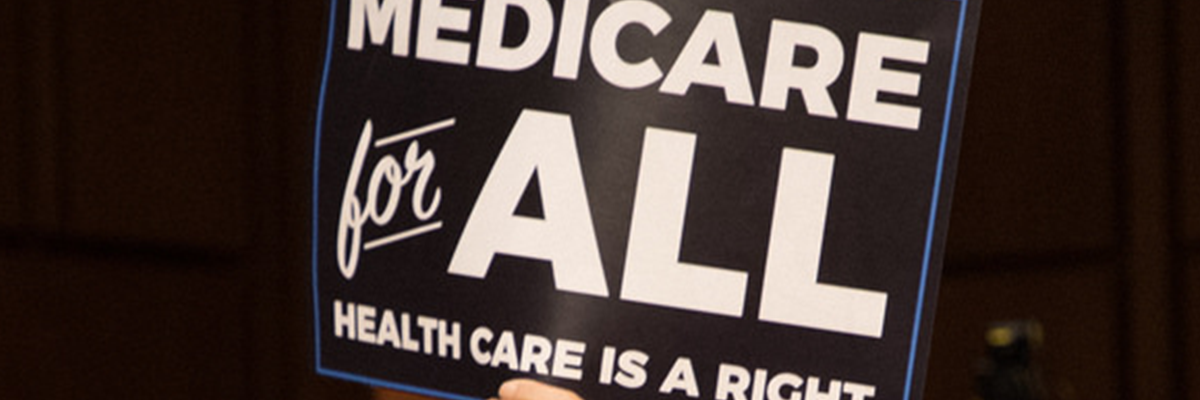While the ravages of the coronavirus pandemic have only intensified calls to do away with the costly and deadly for-profit health insurance industry in the United States, the corporate-backed Partnership for America's Health Care Future, an industry lobby group formed in 2018 to combat Medicare for All, wants people to believe that the so-called "free market" is doing just fine to take care of people's needs amid the outbreak.
After the lobby group shared such a message on social media Sunday, however, Students for a National Health Program (SNaHP), a membership organization made up of medical school students and which advocates for Medicare for All, took issue and responded.
As part of it's industry-backed PR push, the lobby group--also know by its acronym P4AHCF--claimed that it public-private partnerships and innovative programs are filling "the gaps Medicare and Medicaid can't."
On Monday, P4AHCF declared in a separate tweet that its "members are #WorkingTogether to strengthen the employer-provided coverage more than 180 million Americans rely on." That message arrived on the heels of a new analysis published last week that showed an estimated 43 million Americans could lose their employer-provided health insurance this year as the economic downturn triggered by Covid-19 has skyrocketed unemployment to levels not seen since the Great Depression.
As Common Dreams reported Sunday, the report by the Robert Wood Johnson Foundation (RWJF) and the Urban Institute is just the latest to illustrate the failures of an health system that ties coverage to employment. Sen. Bernie Sanders (I-Vt.), the nation's most high-profile and backer of Medicare for All, has made this argument repeatedly:
On Monday, journalist Jon Walker published a new piece for The American Prospect titled, "A Guide to the Nightmare of Getting Health Insurance in a Pandemic," which detailed the absurdity of the U.S. system.
Walker paints a picture of a healthcare system that is decidedly "not working" for those who need it most.
"Losing your health insurance when you lose your job is confusing in the best of times and even more so during the coronavirus crisis," Walker writes. "In addition to needing to deal with all the inherent complexities of our system, there are now numerous additional economic, political, and health factors that make it very difficult to know what is financially the best choice."
So is the so-called "free market" working?
Did it ever?

